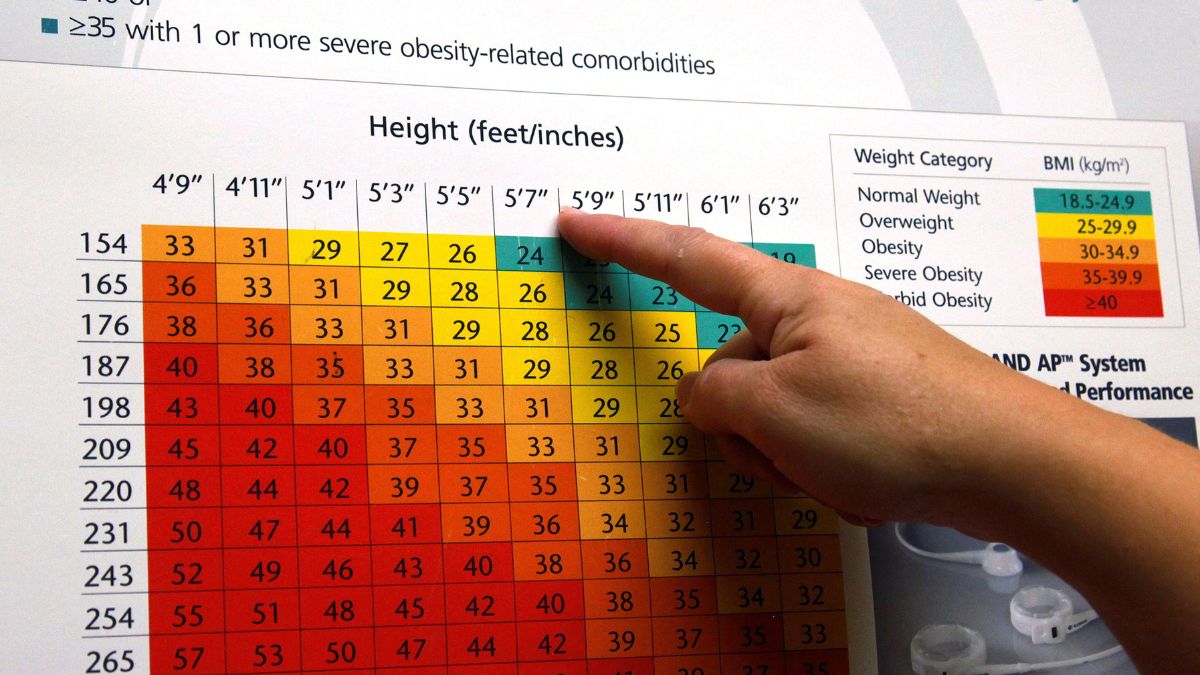Relying solely on BMI to diagnose obesity may be outdated, say global experts. A new report calls for a more comprehensive approach, introducing ‘clinical’ and ‘pre-clinical’ obesity categories based on fat distribution and health impacts. This framework aims to improve diagnosis, reduce stigma, and personalise care for the over one billion people living with obesity worldwide
read more
As obesity continues to affect over a billion people globally, experts are calling for a shift in how the condition is defined and diagnosed.
Relying solely on Body Mass Index (BMI) is increasingly being viewed as inadequate, with medical professionals proposing a more nuanced approach to better serve patients.
Rethinking BMI as the sole indicator
For decades, BMI, calculated by dividing weight (in kilograms) by height squared (in meters), has been the go-to metric for assessing obesity. While simple and widely used, BMI has significant limitations.
It measures weight relative to height but does not distinguish between fat and muscle or assess fat distribution in the body. For example, athletes with high muscle mass may have a high BMI but low body fat, while individuals with normal BMI could still carry unhealthy fat deposits.
“BMI is useful for large-scale population studies, but it doesn’t offer a complete picture of an individual’s health,” said Professor Francesco Rubino, chair of the expert group behind a new report published in The Lancet Diabetes & Endocrinology.
The report highlights the need for more precise diagnostic tools, such as waist circumference, waist-to-hip ratios, or advanced scans like DEXA, which assess fat distribution and organ health more accurately than BMI alone.
Introducing two new obesity categories
The international commission of 58 experts, supported by over 75 medical organisations, recommends replacing the blanket definition of obesity with two categories:
-
Clinical obesity: Characterised by excess body fat causing health issues such as heart disease, type 2 diabetes, or joint pain. Individuals in this category would require medical treatment, including lifestyle changes, medications, or surgery.
-
Pre-Clinical obesity: Defined as excess body fat without current health complications but with an elevated risk of future illnesses. These individuals should receive counseling and monitoring to prevent disease progression.
This nuanced approach acknowledges that not everyone with obesity experiences the same health challenges. “The question of whether obesity is a disease is flawed,” said Rubino. “Some individuals maintain normal organ function long-term, while others face severe health issues immediately.”
The case for redefining obesity
Medical experts argue that redefining obesity is crucial in light of the rising demand for weight-loss drugs like Wegovy and Zepbound, which are often limited to patients with a BMI over 30. Access to these treatments could expand with a more comprehensive diagnosis framework.
Dr. Mariell Jessup, chief scientific and medical officer at the American Heart Association, stated the importance of a nuanced approach. “We struggled with imprecise methods for defining what is a bad weight,” she said.
Also Watch:
Additionally, Rebecca Puhl, deputy director of the University of Connecticut’s Rudd Center for Food Policy and Health, was quoted by The New York Times, she noted that redefining obesity could reduce stigma. “Obesity continues to be viewed as a character flaw rather than a complex health condition,” she said.
What’s next?
Despite widespread support for the new framework, challenges remain in its implementation. BMI has been entrenched as the standard for decades due to its simplicity and association with chronic conditions like diabetes and heart disease. Experts like Dr. David Nathan of Harvard warn that changing global practices will take time and effort.
Critics also argue that waiting to treat obesity until complications arise may lead to worse outcomes. “You wouldn’t treat hypertension only after a stroke,” said Nathan.
However, the new definition represents a step toward personalised care, with the potential to improve early intervention and reduce long-term health risks. As Dr. Kath McCullough from the UK Royal College of Physicians put it, “For too long, we’ve relied on BMI, which misrepresents the condition and fails to reflect how excess body fat impacts health.”
With inputs from agencies

)
